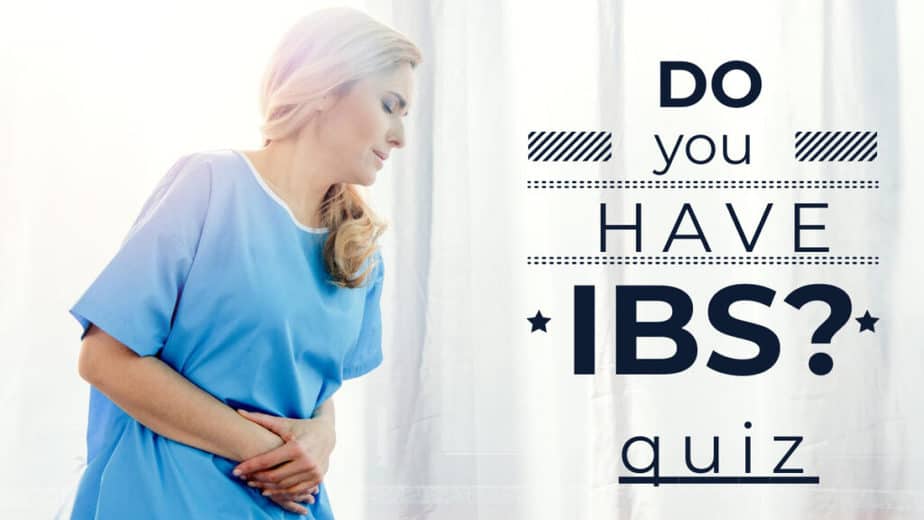When it comes to IBS, no two people will experience the same symptoms during a flare-up.
While one person may find themselves experiencing constipation and pain, the next person might find that they’re unable to get off the toilet!
Understanding your body and making sure that you’ve got a few strategic tricks up your sleeve will see you through those more difficult days – and we’re here to help you figure that out.
Read on to learn what to eat during IBS flare-ups, as well as what foods to avoid.
What Triggers An IBS Flare-up?
If you’re facing increased IBS symptoms, then making some adjustments to your diet is a surefire way of calming down your gut.
Even though we wish we could tell you a straight-cut answer, the truth is, when it comes to IBS – no two people are the same, which means that a variety of different triggering factors come into play.
For the most part, an IBS flare-up will usually be triggered by ingesting a certain type of food that causes your body to negatively react.
These types of food triggers are often high in FODMAPs (sugars that are fermented by the bacteria in the gut). These include sorbitol, fructose, or lactose, among others.
Other factors can trigger an IBS flare-up, including high levels of anxiety or even stress from everyday life.
With all that being said, finding the correct foods to eat to help keep IBS under control can be complicated.
This is especially true for those trickier days when IBS decides to rear its ugly head. If you’re all too familiar with that feeling of frustration, then rest assured, you’re not alone.
In order to maintain your health, wellbeing, and gut health, the best thing that you can do is have a diet plan of action ready to go for those days when IBS is flaring, while also ensuring that you’re working towards identifying culprits when you’ve got it back under control.
What Should You Eat During An IBS Flare-up?
As soon as you can feel your IBS starting to flare up, the first thing that you should do is try to remain as cool and collected as you can, as anxiety and stress can sometimes cause symptoms to become worse.
Instead, you should begin implementing diet changes, as they will help to encourage your gut to become more calm, regardless of whether it’s been triggered from emotions, high FODMAPs, or even something else.
Contact your doctor for help if symptoms become unbearable. Regardless of what the reason may be for your flare, you can try making helpful adjustments to your diet that may relieve symptoms including the following:
1. Small Portion Meals
According to many different health professionals, one of the best things that you can do for yourself during an IBS flare-up is to make sure that you are eating small portions of meals that are relatively low in fat. This helps the stomach empty more quickly and may reduce that bloated and full feeling.
It is also widely recommended that IBS sufferers opt to grill their foods with a low-calorie oil spray as opposed to vegetable cooking oils, as these can trigger IBS.
The smaller portion meals will help to prevent your gut from becoming overwhelmed and full while eating more frequently will help to make sure your caloric needs are met.
2. Less Dairy
Besides making sure that you are eating smaller portion meals while experiencing an IBS flare-up, we also recommend that you consider limiting dairy, which can cause bloating, gas and diarrhea in some people, due to impaired lactase activity. In people without lactose intolerance, it may cause constipation.
Even though you will be the best judge when deciding which types of foods are best for you, it is extremely common for IBS sufferers to struggle with dairy.
Hard cheeses tend to be tolerated better than soft cheese and milk or ice cream.
3. Avoid Gluten
During an IBS flare-up, one of the most common preventative steps that many people take is to cut out gluten or remove it from their diet permanently.
There have been many studies undertaken that suggest that, for some people that suffer from IBS, one of the main triggers can be gluten sensitivity, even in the absence of Celiac disease.
If you feel that this might be one of the reasons you are suffering from IBS flare-ups, then we strongly urge you to consider cutting out gluten.
Ideally, seeing a doctor and being tested for Celiac before eliminating gluten is important. The diagnosis can be missed if you are on a gluten free diet when tested.
If you find yourself suffering from fewer flare-ups (or perhaps no flare-ups at all) then this is a great sign that the main culprit of your IBS flare-ups is gluten.
What To Avoid Eating During An IBS Flare-up
Even though most people when they’re feeling a little run down will opt to treat themselves with comfort foods, that’s something that you should refrain from doing while suffering from an IBS flare-up.
Most of the problems associated with IBS are usually caused by high levels of FODMAPs which are present in many carbohydrates.
Instead, when you suffer from an IBS flare-up, you should swap high levels of carbohydrates, artificial sugar, and fat for low FODMAP and natural foods.
- Learn more about a Low FODMAP Diet for IBS.
You should be sure to eat plenty of protein-rich, organic foods that will help to keep your energy levels high, while also ensuring that your IBS isn’t being triggered.
So, to help give you a little bit of inspiration of what to eat, here are some great food ideas that you could choose to make while suffering from an IBS flare-up:
- Baked or grilled fish and meats
- Baked sweet potato
- Protein shakes and protein bars low in fructose
- Spinach and other leafy greens (avoid cabbage and broccoli!)
- Fruits low in FODMAPs – such as bananas, grapes, citrus fruits, kiwi and strawberries
- Rice, oats, and cornmeal
Here are other articles to help live with IBS:


